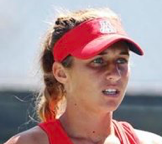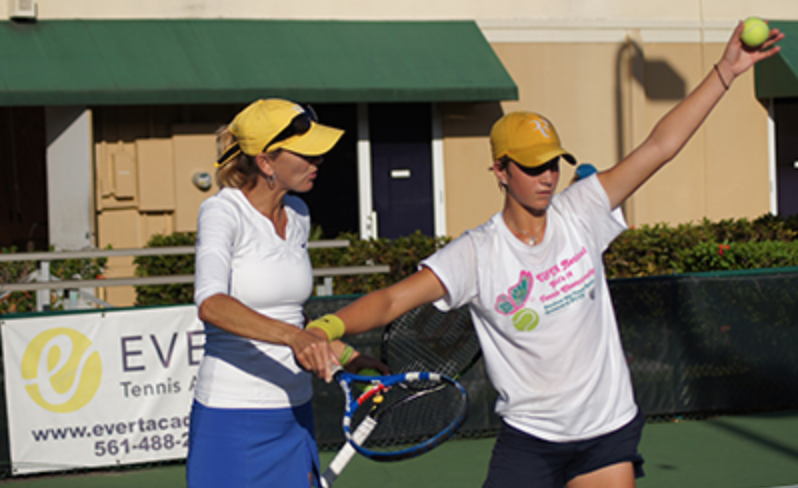Coaches must sometimes ask themselves, “are all the pieces in place to develop and encourage my player? Or are there factors that need more attention?”
Mandy Wilson, a renowned player and coach, is an expert on how coaches can better analyze and composite these factors in order to increase their player’s success. From communication and athletic training needs, to overall factors that have the most significant impact on their growth, Mandy is an expert on working with young athletes.
The WTCA had the opportunity to speak with Wilson and gain more insight into coaching athletes age 13-18. At this age, there are a number of changes that players go through as they grow and develop. Mandy has provided important concepts that coaches can use as building blocks for future development and overall success.
Helping navigate a player through developmental changes can be a difficult road to follow. The years from 13 – 18 are so critical because there are so many changes, in so many different areas of their lives, that are happening both on and off the court. “As a coach we have to understand that every player has a different growth path and their bodies don’t all mature the same way,” says Wilson. “We can start by looking at physically what’s going on with them at this age. Because their bodies are changing and they are maybe starting to play more hours on the court or do more things, they start understanding that the fitness component of their training is really important. They are also going through a lot of emotional changes during this time in their lives. They are not only learning how to manage their emotions, but also learning how to manage themselves. Off the court they have a lot of social things going on, like relationships and friendships. If they don’t have a good understanding of all these components and transitions, they can get distracted very easily and their development as a player can be hindered.”
 Wilson also points out that players in the 13-18 age group are beginning to develop mentally and start understanding how their mindset affects their playing. “At this age they are starting to realize that the psychological part of the game is very important. It’s no longer about “just hitting balls” for them. Usually at this age you start introducing them to the mental toughness side of competing and training. They begin learning how to be a tough competitor and begin taking a more professional approach to their training both on and off the court.”
Wilson also points out that players in the 13-18 age group are beginning to develop mentally and start understanding how their mindset affects their playing. “At this age they are starting to realize that the psychological part of the game is very important. It’s no longer about “just hitting balls” for them. Usually at this age you start introducing them to the mental toughness side of competing and training. They begin learning how to be a tough competitor and begin taking a more professional approach to their training both on and off the court.”
When players begin to develop in these four areas, they also start increasing their training and adding more people to their team. As they take the next step towards their goals, the 13-18 age group is heavily influenced by the behavior of their mentors. They have more people in their lives who are influencing their competitive behaviors, communication strategies, collaborative relationships and their overall motivation to play the game. As players increase their team of mentors, we have to remember how important of a role both Coaches and parents play in shaping and influencing a young player.
As many coaches know, sometimes fostering a healthy relationship with a player’s parents can be difficult to manage. “Some parents are going to be more open and receptive, and some parents will think they know everything. As a coach, you have to be open to communicating with them and touching base with them,” says Wilson. “A lot of times at that age, the role of the parent can shift a little bit. At a younger age, parents are wearing so many hats and playing so many roles, but at ages 13-18 the players team starts to grow. They begin adding more coaches and they have other people getting involved, so this transition can be difficult for many parents because they no longer have such a huge impact on the player’s career. It’s important for everyone, not just the parents, to know their role and know what they are doing in terms of the child’s success.”
In conclusion, the development and influential character of young players can be tough. For coaches one of the most important things you can remember is that every player is unique. From their individual development, to training needs and how you communicate with them, it can be difficult to find the right equation for ensuring success. When you take the time to think about and recognize the changes the player is going through, as well as the role you play in mentoring and influencing them, you can ensure that you have the correct pieces in place to promote growth and overall success.
If you are struggling to find this balance with your player, ask yourself a simple question: “Are all the pieces in place to develop and encourage my player? Or are there factors that need more attention?”

